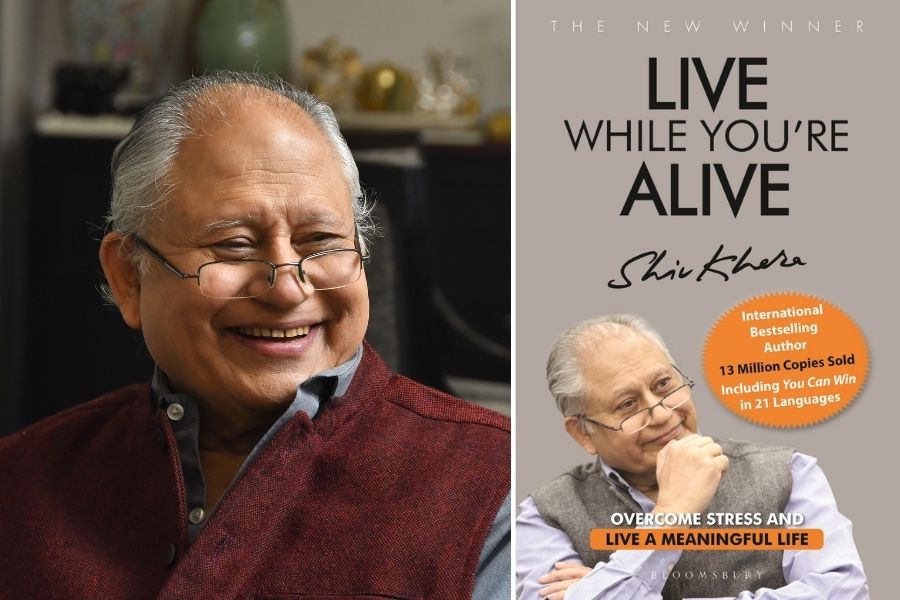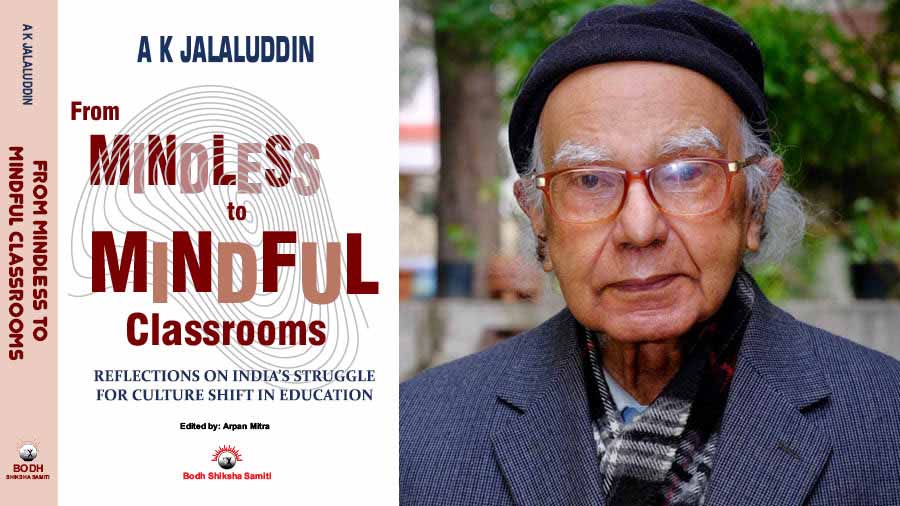“Take a break before you break,” says Shiv Khera highlighting the crux of his new book Live While You’re Alive (Bloomsbury). The author, activist and motivational speaker, known best for his book You Can Win, tackles the subject of today’s world’s silent killer — stress. Drawing from real-life experiences, psychological insights, and practical wisdom, Khera presents a guide to tackling stress and achieving a balanced, fulfilling life.
In the book, Khera writes that stress is both normal and natural. In fact, it is unavoidable and spares none. However, it is something that can be managed. In his signature style, Khera breaks down complex ideas into simple and actionable solutions. Every chapter has a small activity sheet with three or four questions, which keep readers actively engaged with the content. The author highlights how to identify stressors, steps to handle them, the difference between positive and negative stress, and more.
Following is an excerpt from chapters 11 and 12 of the book:
Steps to Handle Stress
Is it possible to stay relaxed when you are faced with threats? Is it possible to face challenges of life with serenity and calmness? Imagine waking up every day with confidence, ready to tackle whatever life throws at you. Picture yourself mastering the art of staying cool and calm in the face of life’s trials and tribulations.
We all possess the power to decide our responses to life’s challenges. We need to cultivate resilience and develop inner peace. It is not what happens to us but how we respond to it that matters.
Here are constructive and destructive ways of handling stress.
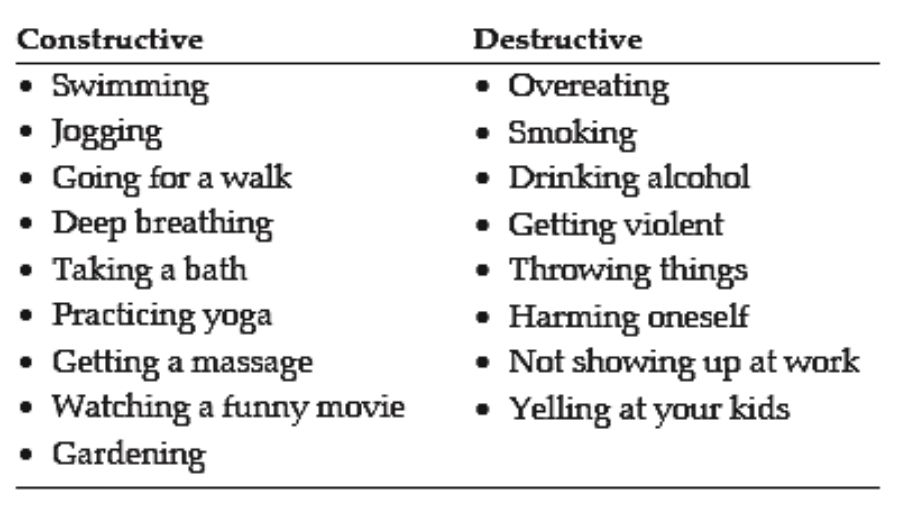
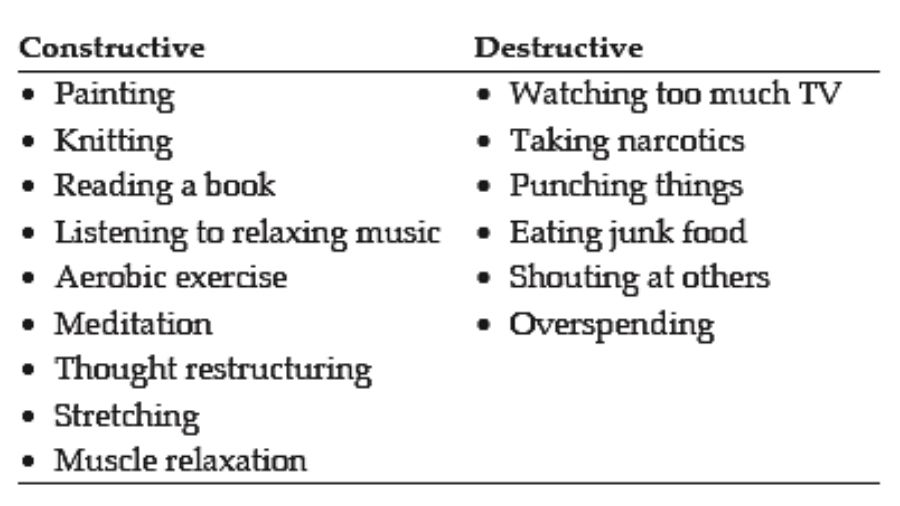
Dealing with stress in a constructive way makes you feel good right away and has long-term benefits. Adopting bad or destructive ways of dealing with stress may produce short-term pleasantness but has hurtful long-term effects.
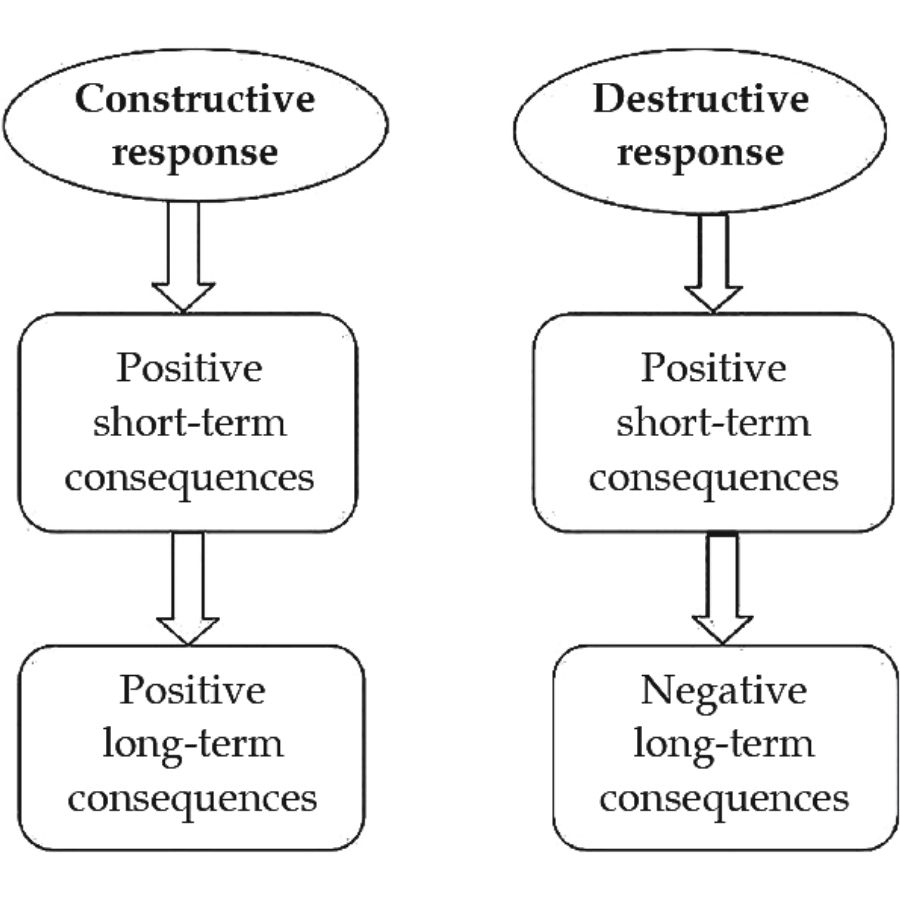
Stress cannot be avoided, but we need to develop healthy mechanisms to either prevent it or cope with it.
Prevention is better than cure.
People with foresight preempt and prevent problems. Short-sighted people only do postmortems.
The Small Change Principle
Small investments today can lead to a very profitable tomorrow. Small changes have a ripple effect.
Research shows that most diets don’t work. Most people who lose weight gain back the same or even more within a matter of months. It appears that the only sustainable way to stay away from weight gain is to make very small, sustainable changes in one’s eating and exercising habits.12
Experience shows that only 10 percent of issues are responsible for employee burnout. In other words, small adjustments can affect significant change.
There was a lady who was stressed out and decided that she would get up ten minutes earlier than usual every morning. She used these ten minutes to have a cup of tea and relax. Initially, it seemed quite insignificant, but as time went by, she noticed her days were relaxed, her relationships improved and her productivity went up. It was a small change that made a big difference.
***
John had been working as an office manager for five years. But gradually he started hating his job; he felt that he was being treated unfairly and was being blamed for everything that went wrong. He had to make many trips to the photocopier every day; this meant he was using his time unproductively, and it became an irritant for him. John’s supervisor was mature; he arranged for a small photocopier solely for John, which was placed within easy reach. This small change brought about a big difference.
***
Steve was a general manager at a large corporation with its parent office in the UK. He was frustrated, because he felt that nobody trusted him. He had to seek approvals from the corporate office for every expenditure over $1,000. He requested that the policy be reviewed, and in light of his past record his limit should be increased to $3,000. The message was conveyed to Steve’s boss, who found out that Steve was responsible for 50 people and a million-dollar budget. The boss approved the $3,000 limit, and thereafter everything went smoothly. In Steve’s case, a small change made a big difference.
It’s a lot easier to change 1 percent in a hundred different areas than to change 100 percent in any one area.
Live While You’re Alive is out on stands now. You can buy your copy here

